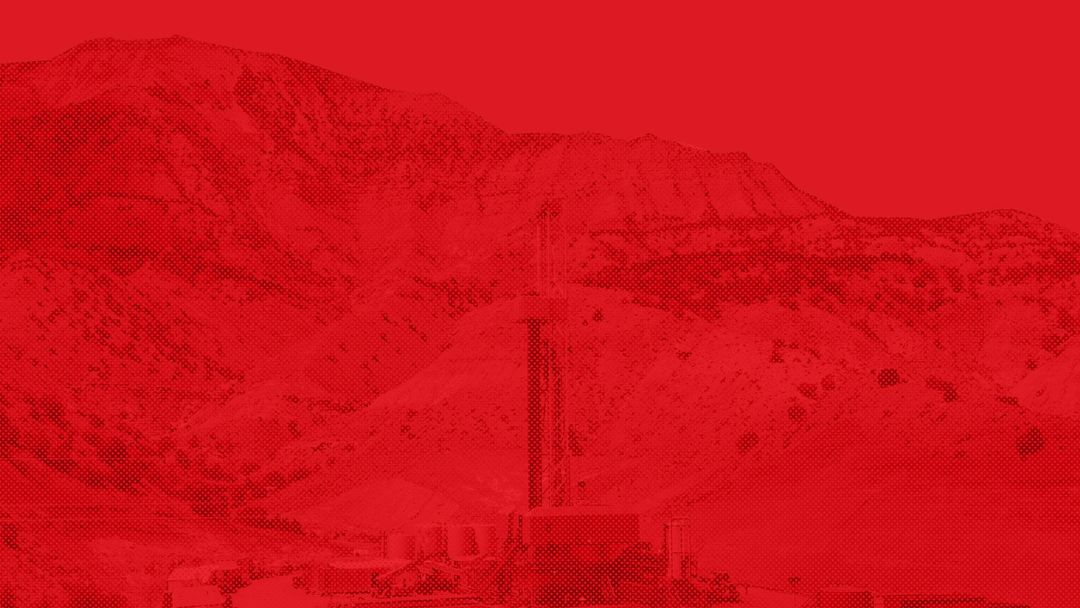September 2023 REPORT
Uncovering KKR’s Environmental Responsibility Gap
Private equity giant KKR claims environmental stewardship.
But is it all just greenwashing?
Download Press Release
KKR might claim to prioritize environmental responsibility, but with a staggering 78% of their energy portfolio companies rooted in fossil fuels, the numbers tell a different story.
Also known as Kohlberg Kravis Roberts & Co, KKR’s recent investments, such as the massive funding (at least $9B) for gas and liquefied natural gas (LNG) transportation and storage through at least 14 projects, bring to light the firm’s continued commitment to the fossil fuel industry. Natural gas is mostly methane, a greenhouse gas responsible for 30 percent of the rise in global temperatures since the Industrial Revolution.
Fact: KKR’s 2022 environmental ranking was a failing ‘D’ grade.
This report spotlights three prominent KKR gas investments, showcasing a pattern of repeated environmental violations, failure to obtain community consent, a lack of accountable business practices, and significant cost overruns. In each instance, the firm has chosen to make significant investments in projects after communities have sounded the alarm. These are projects in low-income neighborhoods including majority Black, immigrant, and Indigenous communities that are already vulnerable to climate change or are already oversaturated with toxic projects.

78% of KKR’s energy portfolio companies invest in fossil fuels, with at least $9 billion in gas and LNG transportation and storage.
While KKR publicly spotlights its renewable projects, their primary strategy remains deeply tied to industries with significant environmental harm, such as liquefied natural gas (LNG).
Case Studies


British Columbia, Canada
Coastal GasLink Pipeline
In 2019, KKR and the Alberta Investment Management Corporation announced the co-acquisition of a majority stake in the Coastal GasLink Pipeline. A group of hereditary chiefs of the Wet’suwet’en National allege that the pipeline construction project is said to violate First Nations’ right to free, prior, and informed consent and is resulting in environmental degradation.
Texas, United States
Port Arthur LNG Project
KKR is the largest owner of the proposed large-scale LNG export terminal in Port Arthur, Texas – an industrial town with a high concentration of oil refineries. Once built, this terminal will likely increase the amount of toxic pollutants in the air, a health risk for residents, who are already exposed to some of the highest levels of lifetime cancer risk from toxic air inhalation in the country. The facility is scheduled to begin operation in 2027-28, and will enable a significant increase in greenhouse gas emissions, jeopardizing efforts to prevent dangerous climate change.




Louisiana, United States
Cameron LNG Project
The facility’s history of environmental violations and air and water pollution is another example of the disconnect between KKR’s claims of “responsible stewardship” and the real-world impact of its investments. The Cameron Parish has struggled financially due to Louisiana’s Industrial Tax Exemption Program, which excuses new facilities from property taxes for 10 years. Cameron LNG proposed a mitigation arrangement to address a state tax exemption that the parish assessor estimated would have cost the Parish up to $1.5 billion in lost tax revenue over the long run. The facility has repeatedly breached state and federal environmental regulations and sits in a severe flood risk area, raising additional alarm.
Impact on Investors
- Future Financial Stability:
KKR’s investments in fossil fuel-related projects appear at odds with long-term financial stability and profitability. As the global momentum shifts towards reducing carbon emissions and embracing renewable energy, investments in pipelines and LNG facilities with long payback periods might not yield the expected return. This poses risks for institutional investors, especially pension funds, that rely on consistent returns.
- Reputational Risks:
Investing in companies alleged to have disregarded Indigenous rights, and with histories of negative environmental impacts and health consequences, can tarnish an investor’s reputation. Investors are increasingly concerned about these risks in addition to conventional financial metrics.
- Trust and Transparency Concerns:
KKR’s environmental track record and limited disclosures can erode trust. Eighty-seven percent of investors believe there’s some degree of greenwashing in corporate reporting. For institutional investors seeking transparency, this presents a significant barrier to investing with confidence.
- Regulatory and Policy Risks:
Policymakers globally are emphasizing environmental compliance and the energy transition. Firms not aligning with these mandates risk legal implications, fines, and sanctions.

KKR’s Claims Don’t Hold Up
While KKR highlights a handful of renewable energy projects and declares a commitment to “environmental stewardship” their predominant energy investment strategy is still tied to oil and gas. KKR received a ‘D’ grade on the PECR consortium scorecard assessing and ranking major private equity players on their fossil fuel portfolios and progress toward energy transition.
Private Equity & Accountability
Private equity’s structure allows for-profit extraction without long-term accountability, and community and environmental consequences are often overlooked. This approach places the planet and the communities where these projects are located at great risk.
KKR’s Troubling Legacy
KKR’s investment in fossil fuel projects contradicts claims of environmental consciousness. Moreover, KKR’s affiliation with an organization opposing climate action – the State Financial Officers Foundation, adds further doubts to its “responsible” image.
It’s Time for True Accountability
The environmental and social repercussions of KKR’s investments can no longer be ignored. The need for true transparency, responsibility, and accountability in the private equity industry is evident. As one of the leading players, KKR should lead the charge by remedying past harms and genuinely committing to a sustainable future, by taking the following actions:
- Science-Based Targets:
Align with clear, evidence-backed climate goals. Cease any new fossil fuel investments and increase renewable energy holdings.
- Full Disclosure:
Offer comprehensive reporting on environmental violations, ongoing litigation, community impacts, and detailed emissions data. Such transparency supports investors of genuine ESG commitment.
- Clear Transition Plan:
Disclose a robust climate transition roadmap. By showcasing a strategic shift towards a greener portfolio, KKR can offer investors a vision of long-term stability.
- Respect for Indigenous and Land Rights:
Ensure all investments respect human rights, just transition, land rights, and Indigenous rights. Such commitments underscore responsible investing and reduce potential legal and reputational risks.
- Political Spending Transparency:
Detail all political spending and lobbying efforts. Align with global standards on responsible corporate climate lobbying, ensure the firm’s actions match its public climate rhetoric.
Analysis is developed jointly by researchers from Americans for Financial Reform Education Fund, Global Energy Monitor, and the Private Equity Stakeholder Project.
About Americans for Financial Reform Education Fund
Americans for Financial Reform Education Fund (AFREF) is a coalition of more than 200 civil rights, community-based, consumer, labor, business, investor, faith-based and civic groups, along with individual experts. Follow AFREF at ourfinancialsecurity.org and on Twitter @RealBankReform.
About Global Energy Monitor
Global Energy Monitor (GEM) develops and shares information in support of the worldwide movement for clean energy, seeking to build an open guide to the world’s energy system. Users of GEM’s data and reports include the International Energy Agency, United Nations Environment Programme, the World Bank, and the Bloomberg Global Coal Countdown. Follow GEM at globalenergymonitor.org and on Twitter @GlobalEnergyMon.
About the Private Equity Stakeholder Project
The Private Equity Stakeholder Project (PESP) is a nonprofit organization with a vision to bring transparency and accountability to the private equity industry and empower impacted communities. Follow PESP at pestakeholder.org and on Twitter @PEstakeholder.

